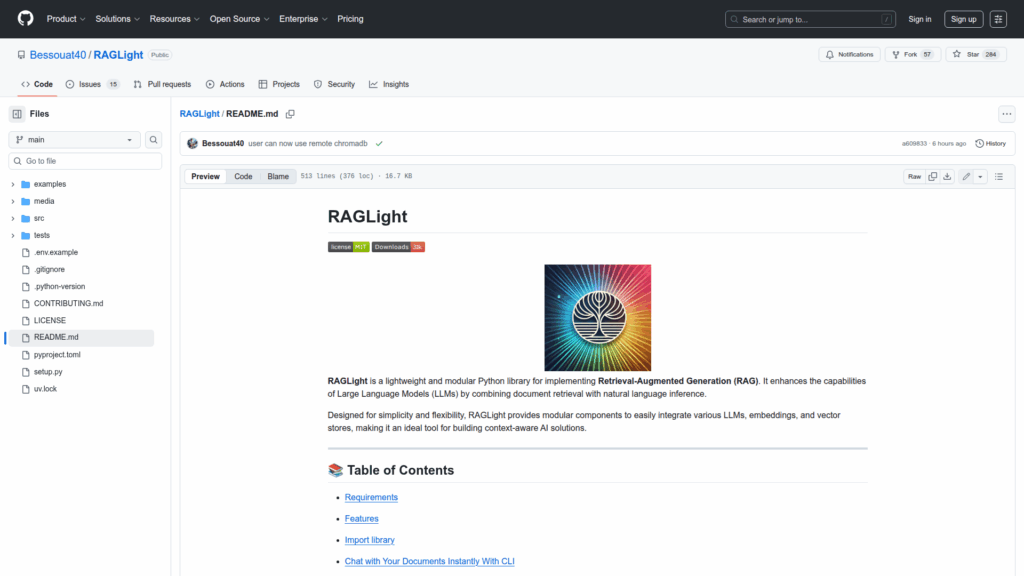RAGLight
Basic Information
RAGLight is a lightweight, modular Python library designed to implement Retrieval-Augmented Generation (RAG) workflows and related pipelines. It is intended for developers who want to build context-aware AI applications by combining document retrieval and language generation. The repository provides ready-made pipelines (RAG, Agentic RAG, RAT), a CLI wizard to index documents and chat with a knowledge base, a Builder for custom pipelines, and examples for ingesting data from local folders and GitHub repositories. It supports multiple LLM providers and embedding backends and includes configuration classes to control indexing, model selection, vector store settings, and ignore-folder rules. Docker examples and environment variable options are provided to configure connections to local or remote LLM services. The project targets teams and engineers integrating retrieval, reasoning, and optional external tool access into conversational or generative systems.








